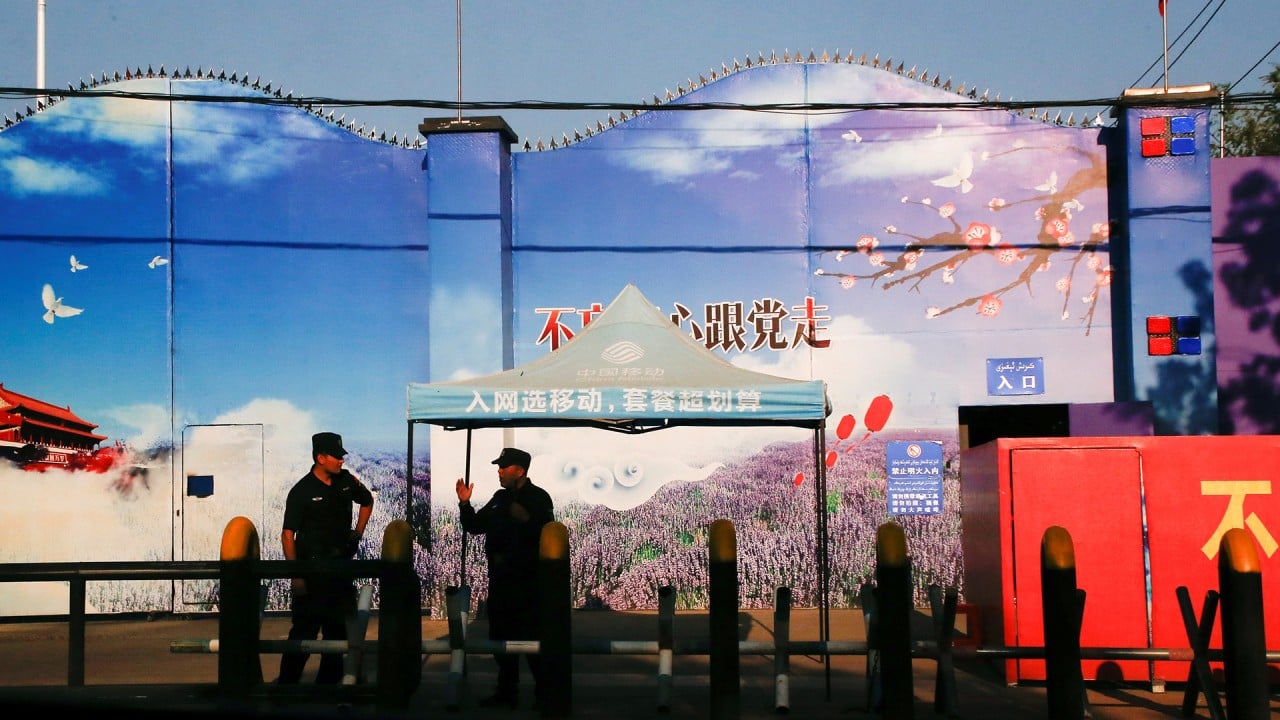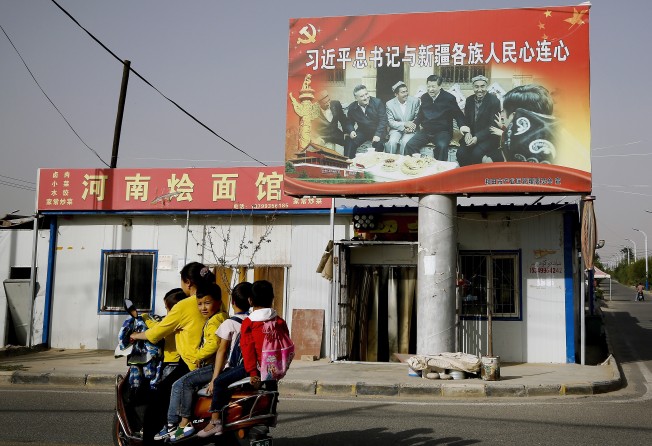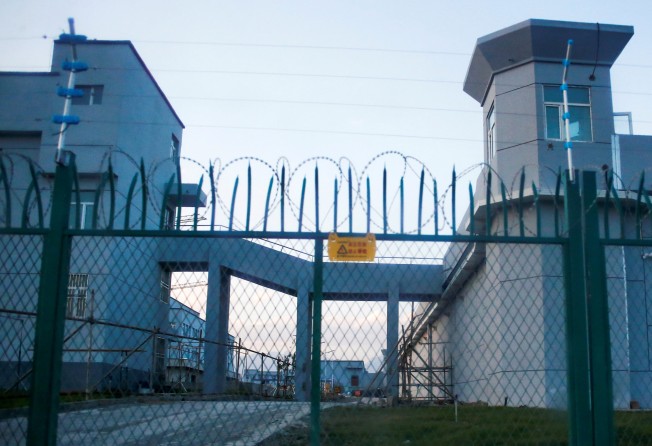
02:27
US declares China has committed genocide in its treatment of Uygurs in Xinjiang

Australia and New Zealand have expressed support for a sanctions blitz by Western countries against Chinese officials over alleged human rights abuses in Xinjiang, despite not imposing penalties of their own.
The joint statement from Canberra and Wellington comes after the US State Department briefly included Australia and New Zealand in a statement announcing the coordinated sanctions – an apparent error the department, without public acknowledgement, later rectified on its website.
Australian foreign minister Marise Payne and her counterpart from New Zealand, Nanaia Mahuta, on Tuesday welcomed the coordinated move by the United States, Canada, the European Union and Britain to sanction Chinese officials and entities over the reported mistreatment of Uygurs and other ethnic minorities in China’s westernmost region.
“We share these countries’ deep concerns, which are held across the Australian and New Zealand communities,” Payne and Mahuta said about conditions in Xinjiang, where human rights groups and activists say about 1 million predominantly Muslim Uygurs are being held in reeducation camps against their will.
“In particular, there is clear evidence of severe human rights abuses that include restrictions on freedom of religion, mass surveillance, large-scale extrajudicial detentions, as well as forced labour and forced birth control, including sterilisation,” the top diplomats said.
They also stressed the need for “transparency and accountability” and reiterated calls for Beijing to “grant meaningful and unfettered access to Xinjiang for United Nations experts, and other independent observers”.
The Chinese embassy in Australia on Tuesday blasted Canberra and Wellington’s joint statement as based on “disinformation and lies” and revealing “deep-seated ideological prejudices”.
“We urge the Australian government to stop vilifying China, refrain from meddling in China’s internal affairs and cease to apply double standards on human rights,” the embassy said in a statement.
“We call on Australia to reflect upon and address its own problems, in particular the killings of innocent civilians by Australian overseas military personnel, the worsening situation of racial discrimination, the long-standing insufficiency in the protection of the rights of Aboriginal peoples as well as the inhumane treatment of detainees in the offshore detention centres.”
Although both Australia and New Zealand have repeatedly raised concerns about Xinjiang, the two governments were not among the Western nations that on Monday announced sanctions targeting four Chinese officials and the Xinjiang Production and Construction Corps Public Security Bureau – a dramatic ratcheting-up of international opposition to Beijing’s controversial policies in the autonomous region.
Beijing hit back on Monday with sanctions against a range of European individuals and entities, including five members of the European Parliament, accusing the bloc of “maliciously spreading lies and disinformation”.
Australia and New Zealand – unlike the US, Canada, Britain and the EU – do not have Magnitsky legislation designed for applying targeted sanctions against individuals suspected of human rights violations or serious corruption.
In December, an Australian parliamentary committee recommended the introduction of such legislation to replace the country’s existing sanctions regime, which Human Rights Watch has described as “opaque, ad hoc” and not sufficiently attuned to human rights concerns.
James Laurenceson, director of the Australia-China Relations Institute at the University of Technology Sydney, said Washington’s erroneous inclusion of Canberra and Wellington in its statement appeared to be a result of it “making assumptions about Australia’s position and jumping the gun”.
“So I think there was agreement from Australia and New Zealand with the US, Britain, Canada and the EU in terms of the scale of human rights abuses in Xinjiang, and in the assessment that there should be consequences, but needing to make a separate statement in view of them not having a firm legislative basis on which to enact similar sanctions,” Laurenceson said.
“I’m surprised the US wasn’t aware of this but these are the challenges involved in coordinating statements and policy actions across countries.”

Nathan Attrill, a researcher at the Australian Strategic Policy Institute, said Canberra and Wellington’s decision to issue a separate statement was “more likely technical than strategic” given the lack of Magnitsky legislation, although Canberra might have been “happy to not have to be the lead on policies to push back against China for a change”.
“The separate statement still demonstrates there was a desire to show solidarity with the move by the US, Britain, and Canada on this issue,” Attrill said.
But Yingjie Guo, a professor of Chinese studies at the University of Sydney, said Canberra might have consciously wished to take a “softer stance” and join Wellington, whose relations with Beijing have been by far the warmest among the Five Eyes intelligence allies.
“The US wouldn’t be offended so long as Australia comes on board and lends support to [President Joe] Biden’s first major attempt at forming a ‘united front’ against China,” Guo said.
Melissa Conley Tyler, a research fellow at the University of Melbourne’s Asia Institute, said Australia and New Zealand might have also wished to show they were “together on this” after clashing earlier this year on the best way to handle relations with Beijing.
Australian MPs on Monday debated a motion to condemn Beijing’s treatment of ethnic minorities, raising comparisons in parliament between the mistreatment of the Uygurs and Nazi Germany’s oppression of the Jews before the Holocaust.
The proposed motion, which was not put to a vote, came after the Australian Senate earlier this month shot down a motion to recognise the treatment of the Uygurs as genocide.
Sino-Australian relations remain strained after a year of tensions over the Covid-19 pandemic, trade, allegations of espionage, and conditions in Xinjiang and Hong Kong.